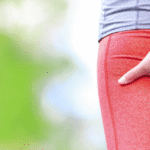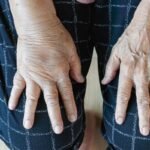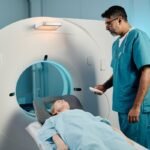Feeling sleepy after eating is a common phenomenon. It’s known as postprandial sleepiness.
It is a feeling of tiredness and drowsiness that appears after lunch and can range from slight fatigue to excessive sleepiness.
When this happens, it is a problem, as it can make it difficult to concentrate, perform work, study, and perform other daily activities.
This postprandial drowsiness can also last between two and four hours, which is roughly the same amount of time it takes to digest a large meal.
Knowing why you feel sleepy after eating is important for taking steps to help prevent post-meal sleepiness and prevent it from interfering with your daily life.
Why does postprandial drowsiness occur?
There are different reasons why you get sleepy after eating.
Digestion
When we eat, our body diverts a significant amount of blood to the digestive system to help with the digestion of food.
This can temporarily reduce blood flow to the brain and cause some drowsiness, especially after a heavy meal.
Circadian rhythm
The circadian rhythm regulates the body’s sleep and wakefulness patterns. It’s normal for energy levels to drop naturally approximately eight hours after waking.
This usually coincides with lunchtime and early afternoon, increasing postprandial sleepiness.
Insulin release
After eating, especially after carbohydrate-rich meals, the body releases insulin to help regulate blood glucose levels.
On the one hand, the release of insulin promotes the absorption of amino acids such as tryptophan. This is then converted into serotonin and melatonin in the brain, neurotransmitters that, in turn, promote relaxation and sleep.
On the other hand, insulin causes a drop in blood sugar levels , which is more pronounced when eating foods high in carbohydrates. This is why people may notice less energy and drowsiness after eating.
Sugar and fats
Eating certain foods can make you feel sleepy after eating, especially those high in sugar, simple carbohydrates, and fat.
Foods rich in magnesium and tryptophan can also contribute to drowsiness. These include dairy products, bananas, oily fish, and nuts.
How to avoid excessive sleepiness after eating
Certain lifestyle and lunch changes can help prevent or reduce postprandial sleepiness.
Following these 5 tips to avoid feeling sleepy after eating can significantly improve your energy levels in the afternoon.
1) Improve rest
Getting a restful night’s sleep is key to health and well-being, as well as being able to function at your best during the day.
Thus, improving rest is the first key measure to prevent sleepiness after eating and during the afternoon.
This is especially important if you have sleep disorders. This is also true at life stages when sleep problems are more likely to arise. For example, insomnia during menopause is very common.
Additionally, lack of sleep can unbalance appetite hormones, including ghrelin (which increases hunger) and leptin (which helps you feel full).
If you don’t get enough rest, cravings and the consumption of higher-calorie, high-fat, and sugary foods often increase.
Lack of sleep also affects mood. If this is the case, people often turn to these types of foods to feel better, creating a vicious cycle that can be difficult to break.
2) Opt for a light meal
It’s advisable to avoid heavy meals, especially during work hours or before any activity that requires concentration. For example, if you have to drive or study.
Large or high-calorie meals require more energy during digestion, so they are more likely to cause sleepiness after eating.
It’s best to opt for a light meal to facilitate the process and help maintain concentration and productivity.
Improving your night’s rest, choosing a light, balanced meal, and drinking enough water will help prevent excessive sleepiness after eating.
3) Prepare a balanced lunch
Choosing a meal rich in protein, healthy fats, and complex carbohydrates can help maintain more stable energy levels.
It’s important to limit foods high in simple carbohydrates and sugar, as well as alcoholic beverages, as these can also cause drowsiness.
If possible, it is best to reserve foods rich in tryptophan for dinner.
4) Stay hydrated
Drinking enough water throughout the day helps improve blood circulation and digestion, reducing the feeling of fatigue.
Drinking a digestive infusion can also help aid digestion and prevent feeling heavy after meals.
5) Take a walk
Going for a walk after eating can help stimulate circulation and reduce postprandial sleepiness. You can also do some light physical activity.
Does napping help combat excessive sleepiness after eating?
Taking a short nap after eating can have many benefits. These include reducing feelings of fatigue, improving alertness and mood, and optimizing cognitive performance.
But for the nap to be beneficial and not interfere with nighttime rest, it should last less than 30 minutes (preferably around 10 or 20).
The problem is that often, due to the type of work or daily obligations, it is not possible to take naps during the week.
Is it good to drink coffee after eating for postprandial sleepiness?
Drinking coffee after lunch to avoid post-meal sleepiness may be beneficial for some people. However, the following factors should be taken into account.
Coffee can speed up digestion by stimulating gastric acid production and intestinal motility. However, this excess gastric acid can be counterproductive for people suffering from reflux or gastritis.
Furthermore, coffee can inhibit the absorption of certain nutrients, including calcium and iron, so you should wait at least an hour before drinking coffee after eating.
Finally, while it can increase concentration and alertness in some people, it can cause nervousness in others.
In this sense, drinking coffee in the afternoon can also interfere with rest.
When is daytime sleepiness considered excessive?
Experiencing excessive sleepiness after eating occasionally, and especially after a heavy meal, is not a cause for concern.
However, there are circumstances in which drowsiness is very intense, persists throughout the day, and/or becomes chronic.
If so, you should consult your doctor to determine the causes of this fatigue, especially if it is accompanied by other symptoms such as thirst, weight loss, lack of energy, apathy, or digestive problems.
Feeling sleepy after eating in diabetes can be an indication that there has been a glucose spike, so it should always be monitored.





















+ There are no comments
Add yours